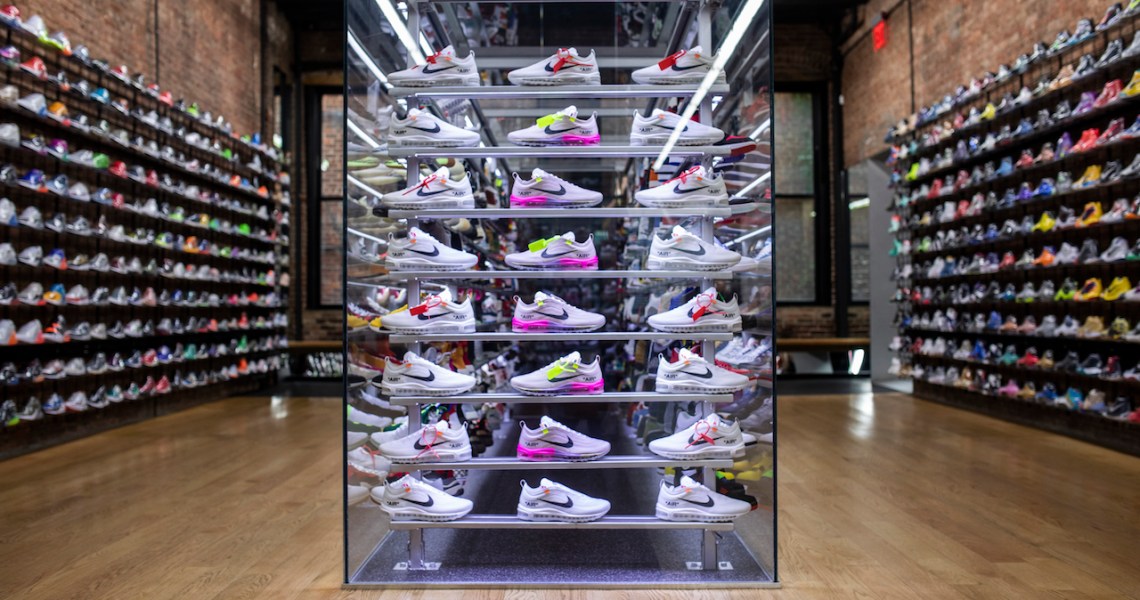Earlier this month, as protests broke out across the country against racial injustice, the Flight Club sneaker shop in Los Angeles was broken into and thousands of dollars worth of sneakers were stolen. But it wasn’t just Flight Club that suffered a loss. Many of those sneakers were on consignment from sellers who had yet to be paid for them.
Flight Club works partially on a consignment model. Usually, sellers send in their shoes, which Flight Club holds and displays in one of its three stores until they are sold. Once the product is sold, the seller is paid and Flight Club takes a 20% cut of the sale. And while the terms and agreements of selling through Flight Club state that the reseller isn’t liable for any lost or stolen property, that hasn’t stopped sellers from feeling the devastating loss of thousands of dollars worth of sneakers disappearing.
Instances like this, though no fault of the company, can drive sellers away if the outcome is not favorable enough — and those sellers are an integral part of the business of resale. Other resale platforms like Grailed don’t require sellers to hand over product until a sale is made, so there’s lower risk.
The sneaker resale industry is dominated by a small number of power sellers who sell thousands of pairs of sneakers a year, sometimes selling more than 25 pairs in a single day. Since there are relatively few of them, these sellers are an important demographic for the various resale platforms to keep happy.
In the past, Flight Club and its parent company GOAT, which together were estimated to be worth more than $250 million in 2018 after a $100 million investment from Foot Locker, have offered monetary credit for sellers to sell big new releases through their platform over another. They’ve also opened drop-off locations to make the selling process as easy as possible.
Technically, Fight Club doesn’t owe the sellers anything for the stolen goods, and sellers don’t have a strong legal basis to demand any reimbursement, according to Rania Sedhom, an attorney at Sedhom Law Group. But Flight Club is sending affected sellers an email telling them that if their shoes were stolen, the company will pay them back for the shoes, said Eric Stragg, a New York City wardrobe stylist. Stragg said he and multiple people he knows had shoes that were stolen.
“A lot of people I know have gotten the email, but the process of getting that money back is going to take a while,” Stragg said. It usually takes around two weeks for a pair of shoes to sell on Flight Club. Stragg said he will likely continue to sell through Flight Club.
A spokesperson for Flight Club said that they are planning on reimbursing sellers for their lost property, but the exact mount and whether it will be for retail price or resale price is still being discussed with the company’s insurance partners. The distinction between retail price and resale price is an important one because sneakers tend to have a large disparity between how much they sell for at retail and at resale. A pair of Yeezy 350s, for example, retails for around $300, but resale buyers will typically pay several times that amount.
“We’ve been communicating regularly with our sellers during this time,” the same spokesperson said in an emailed statement to Glossy. “Those directly affected have been notified that we have initiated the insurance claims process and intend to vigorously defend each and every claim to the fullest extent. The process for filing insurance claims can be lengthy, but we are keeping our consignors informed as we receive new information.”
“Consignment is a very interesting type of relationship,” Sedhom said. “In times like this, where no one is really at fault, that’s where you go back to the contract. A lot of times contracts like this will say the consignor will give the seller back retail price. A smaller reseller might not be able to do anything beyond that, but a company the size of Flight Club can.”




